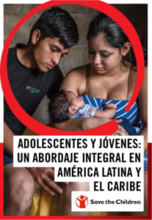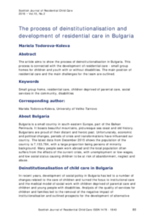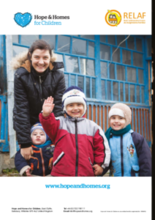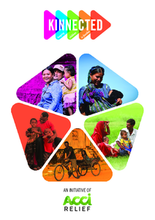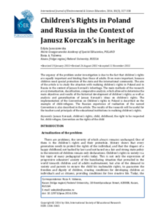Displaying 591 - 600 of 1028
Este documento discute el enfoque integral utilizado por Save the Children para promover la sinergia entre la autonomía personal y el desarrollo económico.
This article presents an overview of the Polish system of foster welfare, its regulations by law and directions for further transformation.
The article aims to show the process of deinstitutionalisation in Bulgaria.
În temeiul prevederilor punctului 89 din Strategia pentru protecţia copilului pe anii 2014-2020, aprobată prin Hotărîrea Guvernului nr. 434 din 10 iunie 2014 (Monitorul Oficial al Republicii Moldova, 2014, nr. 160-166, art.
Décadas de investigaciones comprueban que el crecimiento de un niño en una institución posee un impacto nocivo en cuanto a lo psicológico, lo emocional y lo físico, incluyendo trastornos de vinculación, retrasos cognitivos y en el desarrollo, y una falta de capacidades sociales y para la vida que luego concluyen en múltiples desventajas durante la adultez.
This booklet is based on a recent internal desk review of Save the Children’s and partners’ work against physical and humiliating punishment of children, commissioned by Save the Children Sweden. It aims to present best practices, to show what methods have worked around the world, and to spread knowledge about results achieved and lessons learned when it comes to law reform and positive discipline.
This bulletin highlights the key objectives and key amendments of Uganda's Children Act Amendment of 2016. It also outlines the process by which the Bill was developed and approved and lays out next steps for implementing the Act and ensuring the rights of children in Uganda.
Kinnected is a program run in 10 countries by the organization ACCI Relief aimed at preserving and strengthening families and assisting children currently in residential care to achieve their right to be raised in a family. This report describes Kinnected’s programs and initiatives underway in Cambodia, Sri Lanka, and Lesotho and includes some individual case studies.
The aim of this article is to study the situation on realizing children’s rights in Poland and in Russia in the context of Janusz Korczak’s principles.
Este documento pretende impulsar un cambio en el paradigma de la institucionalización como respuesta a la situación de los niños, niñas y adolescentes privados de cuidados familiares.

